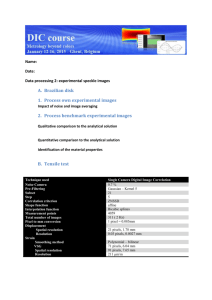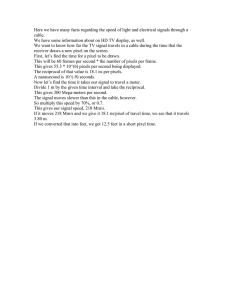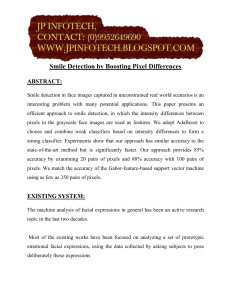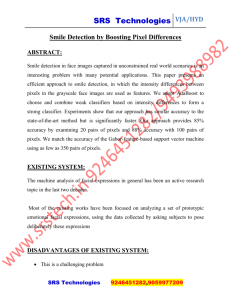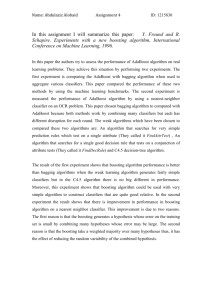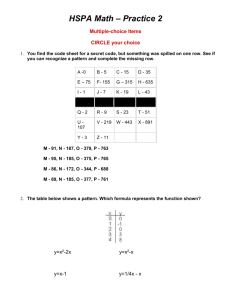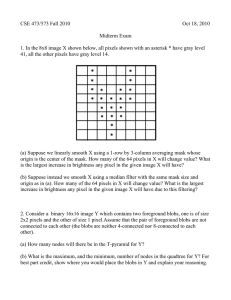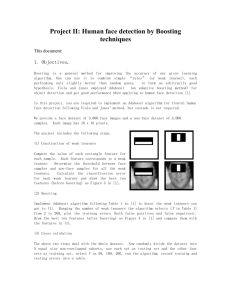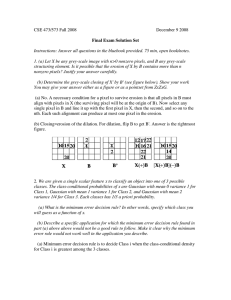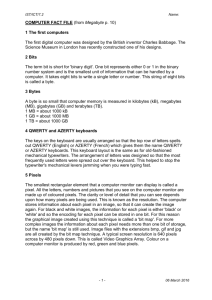Smile Detection by Boosting Pixel Differences
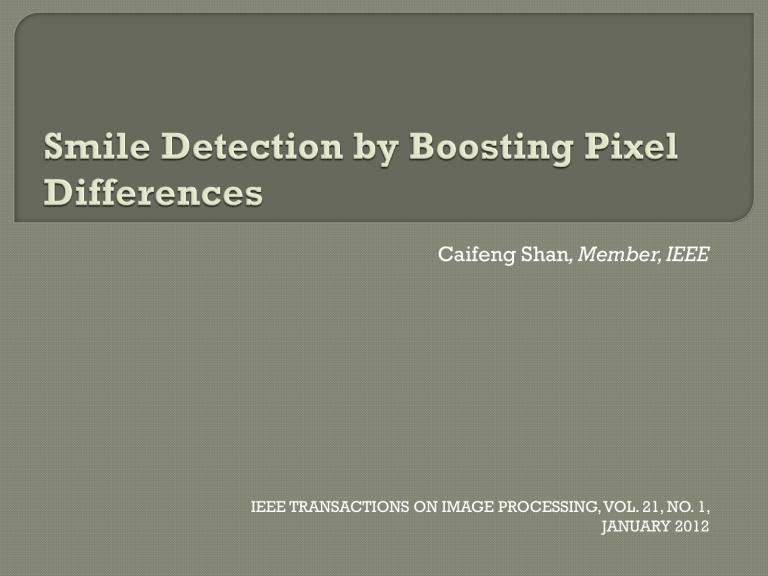
Caifeng Shan, Member, IEEE
IEEE TRANSACTIONS ON IMAGE PROCESSING, VOL. 21, NO. 1,
JANUARY 2012
INTRODUCTION
METHOD
EXPERIMENTS
INTRODUCTION
METHOD
EXPERIMENTS
Most of the existing works have been focused on analyzing a set of prototypic emotional facial expressions
Using the data collected by asking subjects to pose deliberately these expressions
In this paper, we focus on smile detection in face images captured in real-world scenarios
INTRODUCTION
METHOD
EXPERIMENTS
BOOSTING PIXEL DIFFERENCES
S. Baluja and H. A. Rowley, “ Boosting set identification performance ,”Int. J. Comput. Vis., vol. 71, no. 1, pp. 111–119, 2007
Baluja introduced to use the relationship between two pixels’ intensities as features.
they used five types of pixel comparison operators (and their inverses):
The binary result of each comparison, which is represented numerically as 1 or 0, is used as the feature. Thus, for an image of pixels, there are or 3312000 pixel-comparison features
Instead of utilizing the above comparison operators, we propose to use the intensity difference between two pixels as a simple feature
For an image of 24*24 pixels, there are
or 331200 features extracted
AdaBoost ( Adaptive Boosting )
AdaBoost learns a small number of weak classifiers whose performance is just better than random guessing and boosts them iteratively into a strong classifier of higher accuracy the weak classifier consists of feature (i.e., the intensity difference),threshold , and parity indicating the direction of the inequality sign as follows:
INTRODUCTION
METHOD
EXPERIMENTS
Data
Database : GENKI4K consists of 4000 images (2162 “smile” and 1828
“nonsmile”)
In our experiments, the images were converted to grayscale
the faces were normalized to reach a canonical face of 48*48 pixels
Data
Illumination Normalization
Histogram equalization (HE)
Single-scale retinex (SSR)
Discrete cosine transform (DCT)
LBP
Tan–Triggs
Illumination Normalization
Boosting Pixel Intensity Differences
Average of (left) all smile faces and (right) all nonsmile faces
Impact of Pose Variation
Impact of Pose Variation
